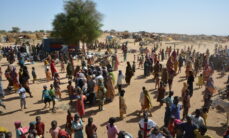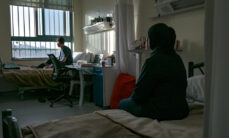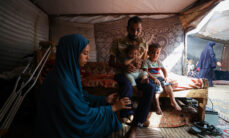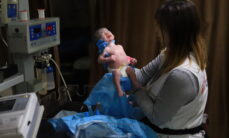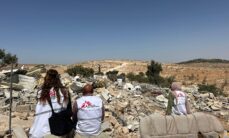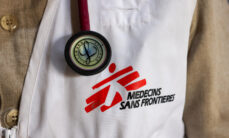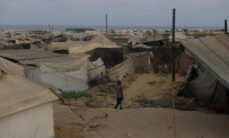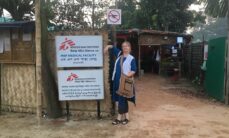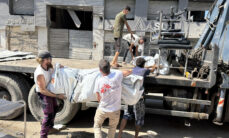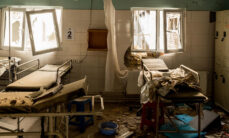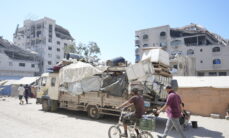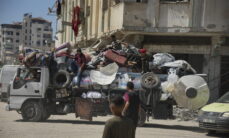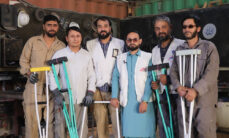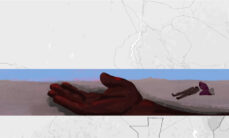
The consequences of violence on the Poland-Belarus border [MSF REPORT] | Lekarze Bez Granic
Since 2021, legislative changes in Poland have progressively undermined people’s right to seek asylum, culminating in the proposal to completely suspend this fundamental right for certain groups. Since November 2022, Médecins Sans Frontières (MSF) has witnessed the steady increase in militarization and violence used against those seeking safety in Poland.
On February 4, MSF will speak to the Polish Parliament, describing what its medical staff have witnessed in more than two years at the Poland-Belarus border. MSF calls on Poland and all EU Member States to urgently change course to safeguard the right to seek territorial asylum, and to stop endangering the lives and well-being of people seeking refuge in the European Union (EU). For too long, the law has resulted in physical violence against vulnerable people seeking safety.
Violence at the border: two years of MSF working on the Poland-Belarus border
From November 2022 to November 2024, MSF treated 442 people stranded in the forests on the border between Poland and Belarus. About 50% of them suffered physical trauma related to the violence. Their injuries included beatings, dog bites and rubber bullets. In addition to the violence, more than half of the patients suffered from frostbite, trench foot or hypothermia due to prolonged exposure to harsh conditions. Other conditions included infections, dehydration, exhaustion, psychological trauma, deep cuts and fractures related to climbing or falling over the border fence.
„TRAPPED BETWEEN BORDERS”: BRIEFING NOTE
The Life-Threatening Consequences of increased militarisation and violence at the Poland-Belarus border
The consequences of denying the right to humanitarian aid at the Poland-Belarus border
Bills passed in 2021 and 2024 gave additional powers to border guards and soldiers, allowing them to exercise near-absolute discretion to deny asylum to people without due process. In some cases, this has led to the separation of families. Although MSF and other organizations say there is humanitarian assistance for migrants and refugees, they face restrictions from Polish authorities.
Humanitarian workers and civil society volunteers, who play a key role in delivering humanitarian assistance at the border, are denied access to the buffer zone and are increasingly at risk of criminalisation. As a result, much of the area remains inaccessible to humanitarian and medical interventions, including those of MSF.
However, far from improving these policies and practices, the Polish government is proposing even harsher legislation, with the freedom to suspend the right to seek asylum for certain groups.
– The new proposals to suspend asylum rights are unacceptable. The Polish government and the Belarusian authorities must recognise that these are human beings, not pawns to be exploited for political purposes – says Uriel Mazzoli, MSF Head of Mission in Poland.
Direction of European migration policies needs to change
Today, Poland holds the presidency of the Council of the EU, and the country’s recent asylum legislation has been endorsed in public statements by the European Commission. Since the so-called “migration crisis” began in Europe in 2015, European institutions and member states have been steadily eroding the foundations of asylum in the EU, opting instead for containment policies in third countries, pushbacks, and outright violence at the borders.
Dehumanizing rhetoric, characterizing migrants and refugees as threats, has played a key role in the continuation of these policies. The concept of “hybrid warfare” evoked by Polish and European officials, in reference to people crossing from Belarus to Poland, is one of the clearest examples.
With the EU Council Presidency, Poland has the opportunity to demonstrate its leadership in putting human life and humane asylum obligations before political currencies. Since 2015, MSF teams have witnessed the colossal failure of EU member states and institutions to address the needs of migrants and refugees, systematically opting for violence and containment over humane asylum policies. Poland must ensure that people have access to fair asylum procedures and necessary humanitarian assistance.

